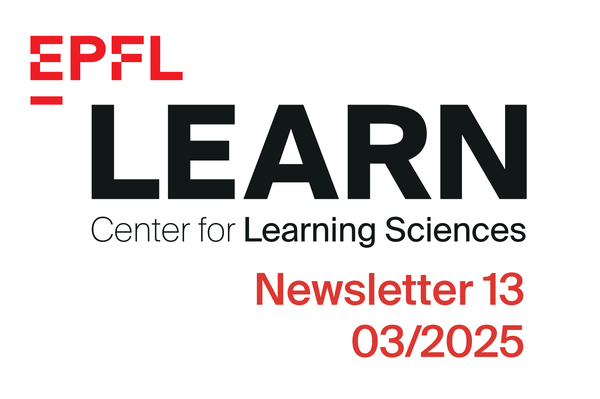Cher·es membres et ami·es du Centre LEARN,
La lettre d'information du Centre LEARN est de retour avec des idées nouvelles et stimulantes ! Si vous vous demandez par où commencer votre lecture, nous avons une recommandation à vous faire : Tanja Käser, du laboratoire Machine Learning for Education, partage sa vision de l'IA dans l'éducation dans un entretien avec Educa. Selon elle, l'IA devrait donner plus de pouvoir aux enseignant·es, en les aidant à répondre aux besoins individuels des élèves et à améliorer l'apprentissage pour toutes et tous. Les projets de son laboratoire illustrent cette approche en action, par exemple dans le domaine de la formation professionnelle.
Un autre exemple passionnant de soutien de l'IA à l'enseignement et à l'apprentissage dans cette édition : ArgueMate, le dernier projet de l'EPFL à rejoindre BeLEARN. Cet agent conversationnel pédagogique piloté par l'IA vise à engager les étudiant·es dans des débats structurés et de qualité, à approfondir leur compréhension tout en permettant aux enseignant·es d'orchestrer un apprentissage basé sur le débat dans des classes entières.
✨ Curieux d'en savoir plus ? Plongez dans ce nouveau numéro et laissez-vous inspirer ! ✨
Pour le Centre LEARN,
Jessica Dehler Zufferey, Directrice Exécutive
